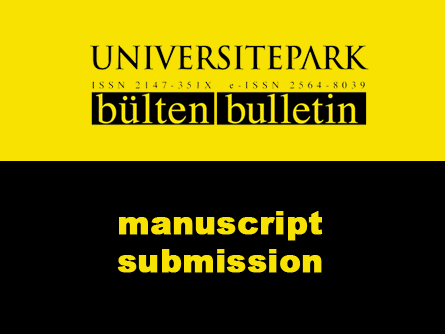| 1 |
Laboratory Technology: A “Neglected” but Unique Interdisciplinary Tool helping to Enhance Scientific Research and Development in Academic and Research Institutions in Africa pp. 99-115 | Published Online: December 2021 | DOI: 10.22521/unibulletin.2021.102.1 Albert Koomson, Jonathan Ntow, Prosper Dordunu, Emmanuel Birikorang, Douglas Tetteh Ayitey
Abstract
Keywords: Academic, Africa, interdisciplinary, laboratory technology, scientific research. |
|
| 2 |
Soft Skills: Connecting Classrooms with the Workplace—A Systematic Review pp. 116-138 | Published Online: December 2021 | DOI: 10.22521/unibulletin.2021.102.2 Mohammed El Messaoudi
Abstract
Keywords: Soft skills, workplace readiness, skills gap. |
|
| 3 |
Pre-primary Education for Children who Experience Disabilities in Tanzania: Practices and Constraints pp. 139-156 | Published Online: December 2021 | DOI: 10.22521/unibulletin.2021.102.3 Juhudi K. Cosmas
Abstract
Materials/methods – The study was a qualitative inquiry underpinned by collective case study design. A sample of 20 participants was purposefully involved. The data were collected through individual in-depth interviews and focus group discussions. Results – While pre-primary education was provided to children who experience disabilities, macro- and micro-exclusion persisted because of ableism practices within the education system. Efforts towards upholding the rights of all children were impeded by ableism thinking which resulted into macro- and micro-exclusion. Additional barriers included lack of identification and assessment practices, lack of nutrition and medical services, negative and discriminatory practices, shortage of qualified teachers, inappropriate instructional materials, lack of professional and parental support, and inaccessible school environment. Conclusion – Notably, pre-primary education for children who experience disabilities was provided within a difficult environment that requires immediate intervention. Critical to addressing all barriers is recognizing and disestablishing ableism thinking within the education system. Keywords: Ableism, disability, exclusion, inclusive education, pre-primary education. |
|
| 4 |
Motivational Factors that Influence Choosing Teaching as a Career: A FIT-Choice Study of Preservice and Inservice Teachers in India pp. 157-170 | Published Online: December 2021 | DOI: 10.22521/unibulletin.2021.102.4 Varda Sardana, Shubhangi Verma, Shubham Singhania
Abstract
Materials/methods – The study uses an exploratory research design. Purposive sampling technique is employed to obtain a sample of 184 inservice and preservice teachers from India, using a structured questionnaire for data collection. The study further makes use of descriptive and inferential statistics in analyzing the collected data. Results – The findings suggest that the factors which motivate students to go into teaching as a profession are their perceived teaching abilities, social utility values such as ability to make a social contribution as well as shaping the future of the youth/young minds, and intrinsic career value. Conclusion – The study provides suggestions to policymakers and recruiting institutions to consider certain factors whilst designing job descriptions for roles within educational institutions. It also emphasizes the importance of budding teachers to recognize factors that play a crucial role in their career choice decisions. Keywords: FIT choice, teaching, motivation, education, career choice. |
UNIBULLETIN News!
► New issue coming soon! (Volume 13 Issue 1, 2024)
► Call for Papers
UNIBULLETIN is calling for submissions. Authors are invited to submit papers from the all fields of the Education (General) and Social Sciences (General) in the international context. All submissions should be presented only in English.
